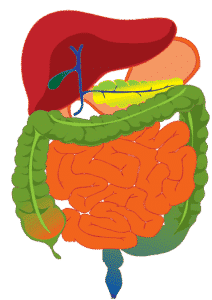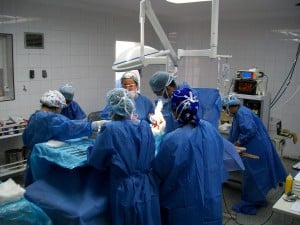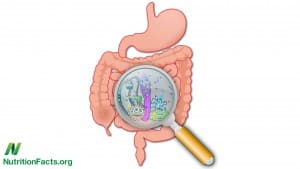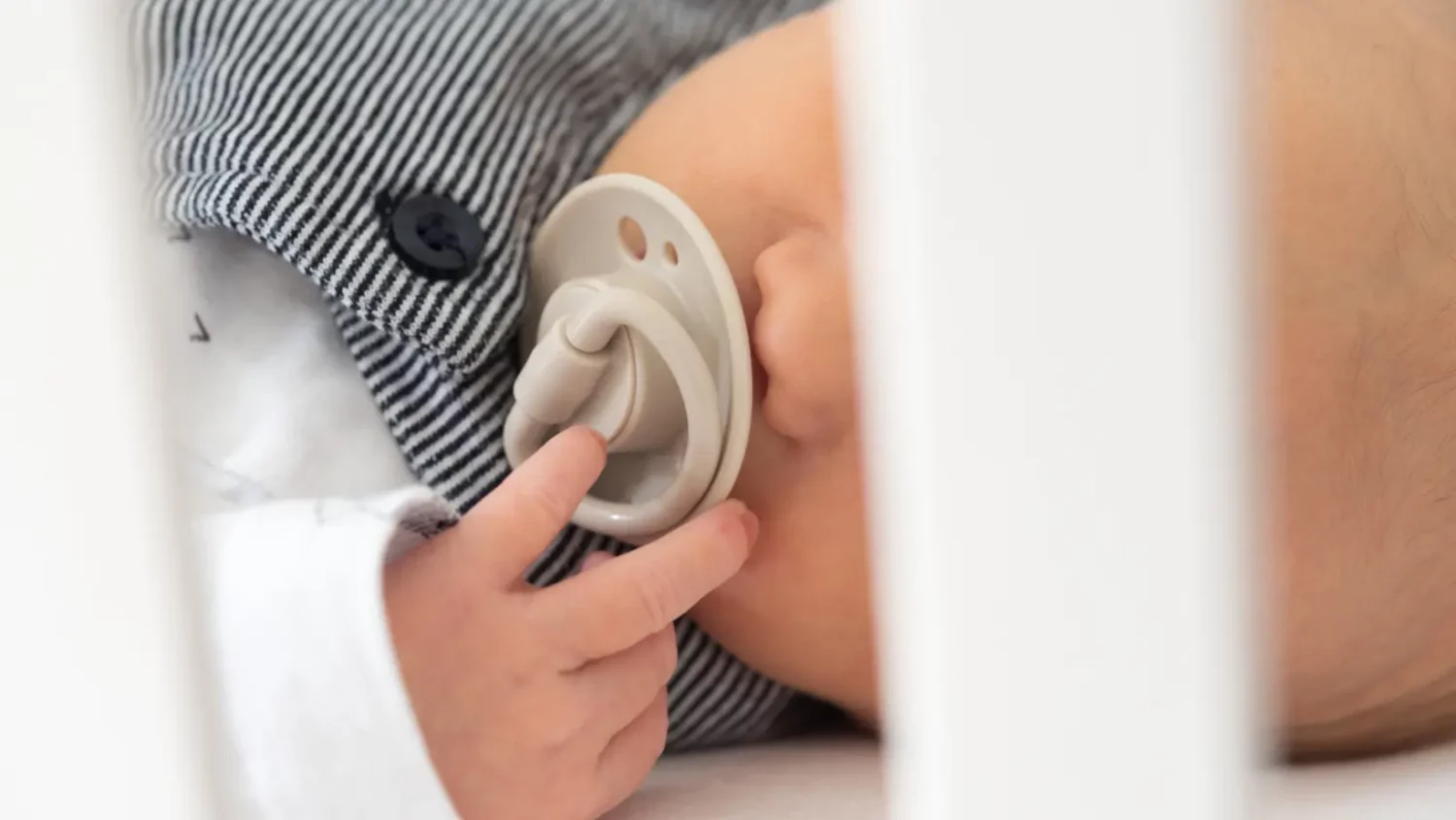Up to 80% of the body’s immune cells are found in the digestive tract. Often called the body’s “second brain,” the gut plays a key role in both immunity and neurological function. When it’s out of balance, many systems are affected.

The stomach, small, and large intestines are more than digestive organs — they form a major part of the immune system, active from birth thanks to essential bacteria.
Babies frequently treated with antibiotics often struggle with recurrent infections. Early antibiotic exposure, especially in the neonatal period, can disrupt their microbiota, increasing the risk of asthma, obesity, and diabetes.
At birth, a baby’s immune system is still developing. While antibodies from the mother offer protection during pregnancy and through breastfeeding, the mode of delivery also shapes the baby’s intestinal immunity.
Vaginal Birth
Women that consume probiotic supplements and prebiotics found in nuts, fibres and vegetables during pregnancy help both their own intestinal environment and their future baby’s.
Babies that are vaginally delivered will be in contact with thousands of good bacteria. Specifically, these are bifidobacteria (probiotics) that live in their intestine and help defend them against invasive microbial pathogens (bad bacteria, viruses, etc.), prevent metabolic illnesses such as diabetes, obesity, and ensure that they’re generally healthy.
According to a recent Finnish study, more than 72% of the initial microbes that form the newborn’s microbiota come from the mother’s intestine. Each baby has their personal microbiota. It’s unique, like their fingerprint. A baby born at term has microbiota different from that in a premature baby. The way they’re delivered also influences the make-up of the microbiota, as does breastfeeding.
We now know that, scientifically, the amniotic fluid, placenta and meconium (baby’s stool at birth) aren’t sterile in-utero. These all have a few bacteria, and when consuming the amniotic fluid and via the placenta, the baby will be in contact with certain bacteria. These will then be found in their stool.
During their intra-uterine life, the baby is already in contact with the first bacteria that will line their intestine. Added to a healthy pregnancy, vaginal birth without antibiotics, and breastfeeding, these elements will have a major positive impact on the baby’s immune and metabolic systems and their development.
Why is this natural infection positive? When they enter their extra-uterine life, the baby has to develop their intestinal microbiota and flora. Intestinal microbiota is a relatively recent term designating the immunity part of the baby’s intestinal environment. It’s an ecosystem that groups together bacteria contributing to their health and protecting them against infectious agents, bacteria and viruses. The good bacteria settle in the intestinal wall and prevent bad bacteria from also settling—it’s the system’s natural antibiotic. Thus, the intestinal microbiota develops in parallel with the child’s growth and development.Preliminary studies on humans and animals show that a good microbiota helps with intestinal motility, pain perception, behavior, mood and neurocognitive development.
Caesarian Birth

A baby born by caesarean misses the natural exposure to beneficial bacteria present during vaginal birth. Instead, they arrive in a sterile environment and don’t benefit from the microbial “contamination” that helps build intestinal immunity.
Skin-to-skin contact and breastfeeding are essential after birth to help colonize the baby’s gut with good bacteria from the mother and father. These actions help correct the delay in microbiota development caused by a caesarean birth.
To support gut health, probiotics are increasingly recommended. These living microorganisms can promote immune function and support the development of the gut-brain axis, which is important for neurocognitive development.
However, the choice of probiotic depends on the baby’s age and health goals. Always consult a professional to choose the right strain — for instance, Lactobacillus reuteri (BioGaia®) for colic or Bifidobacterium 35624™ (Align®) for gut sensitivity.
Good vs. Not-so-Good Bacteria
It’s all about balancing good vs. not-so-good bacteria. Balance is difficult to maintain and is influenced by different factors. If the microbiota has been compromised by an infection, taking an antibiotic, having allergy or diarrhea, the immune barrier function of the intestine will be affected, while colic, constipation or regurgitation, are also associated with a problem. imbalance of the microbiota but more associated with a neurodevelopmental disorder (immaturity) which will be more related to the brain-gut axis.
In a healthy baby with microbiota, it has been shown that they have less fever, diarrhea, colic, regurgitation, diaper rash and consequently take fewer antibiotics. There are also lower rates of obesity because their intestines absorb better.
Antibiotics combat more than just bad bacteria, which can become resistant when antibiotics are taken repeatedly. They also attack good bacteria by modifying the intestinal environment. This makes it more vulnerable to infections, and the antibiotics will in no way act on the virus.
Taking antibiotics during the neonatal period, even for short periods, significantly increases the weakening of the 6-month-old baby’s microbiota.
When talking about the first 1000 days in the life of a newborn, their intestinal system development is important, which is associated with the presence of glial cells. A three-year-old child will have developed a mature intestinal function both for immune and inflammatory responses, and this for the rest of their lives.
What is the difference between intestinal microbiota and intestinal flora?

The baby’s intestinal flora supports both digestion and immunity. It’s made up of all the bacteria in the digestive tract, while the microbiota acts as the gut’s defence system.
As a parent, you can’t prevent every infection, but you can support your baby’s immunity through healthy routines: balanced diet, regular sleep, and active play. Infections do help build natural defences over time.
Probiotics—beneficial bacteria—are being studied as a preventive option, especially for pregnant women and babies with a family history of allergies (asthma, eczema, food sensitivities). Breast milk naturally contains bifidobacteria and prebiotics, which nourish the microbiota, boost antibodies, protect the intestinal wall, and help prevent harmful bacteria from settling.
Current research shows probiotics like Bifidobacterium lactis may help reduce eczema symptoms and shorten diarrheal episodes in babies. While Health Canada recognizes their potential, more studies are needed before recommending routine use during breastfeeding or adding them to formula.
That said, two strains are already approved for infants:
– Bifidobacteria to support immunity
– Lactobacilli for digestion and symptoms like colic, reflux, and diarrhea (e.g., BioGaia® for infants, starting with one drop daily and increasing gradually as per age or pharmacist’s advice)
Probiotics are generally safe, with few contraindications except for rare allergies to ingredients. So far, clinical studies report more benefits than risks.
For more details, refer to the Clinical Guide to Probiotic Products Available in Canada.
Marie Fortier
The Baby Expert
Updated article on April 2024.


